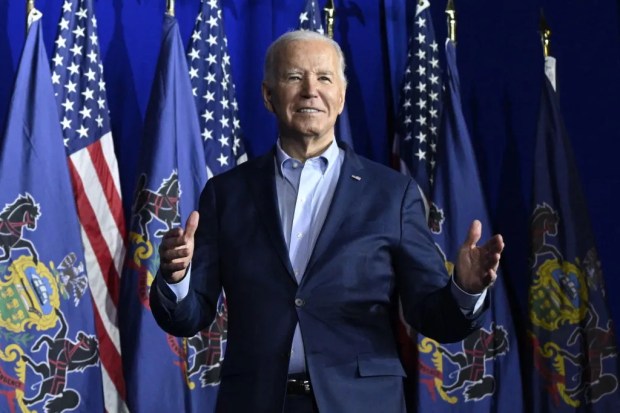Campaigning to become Labour leader last year, Keir Starmer said Harold Wilson was his favourite party leader of the last fifty years because he had unified the party. This was hardly a coincidence as putting an end to ‘factionalism’ was then one of Starmer’s main promises to Labour members. Subsequently Starmer has name checked Wilson in various speeches, especially noting his predecessor’s electoral success – and repeating his 1962 claim that Labour was ‘a moral crusade or it is nothing.’
From these references, Wilson who died in 1995 emerges (and so, presumably was the intention, also Starmer) as a man of principle and an election winner: what’s not to like? But what’s the evidence that Starmer can – or indeed should – emulate his hero?
When he resigned as leader in 1976, Wilson was actually reviled across the party: by the right for being unwilling to confront the left and by the left for pursuing the policies of the right. No wonder that as leader he was apt to mistrust those outside his tightly closed circle of advisors within which, over a late-night whiskey and cigar, he would spin paranoid fantasies. But Wilson was right to be paranoid: sometimes they really were out to get him.
Keeping the Labour party together came at considerable personal cost therefore, something with which Starmer can now probably empathise. And it didn’t even work: a few years after Wilson’s resignation, the left had taken control of most of the party machine while leading figures on the right exited to form the SDP. In retrospect, Wilson’s achievement was to delay what was in all likelihood an inevitable civil war. And that bitter conflict having broken out, during the party’s long, hard slog back to electoral relevance in the later 1980s and 1990s few spoke favourably of their former leader. Indeed, so far as Tony Blair was concerned, Wilson was part of a discredited ‘Old Labour’.
Since then, however, Wilson’s reputation has improved, partly thanks to the passage of time but also Blair’s decision to involve Britain in the US invasion of Iraq. Remarkably, having attacked him while leader, the left decided Wilson – if only because he kept Britain out of the Vietnam War – wasn’t so bad after all. While leader, Ed Miliband was regularly urged to emulate Wilson. Today Labour members seem well-disposed towards him: a 2020 YouGov survey placed Wilson just behind Clement Attlee but well ahead of Tony Blair as their favourite leader. It will be interesting to see what Starmer’s shadow home secretary Nick Thomas-Symonds makes of him in his forthcoming biography.
Given this new positive consensus is no surprise that Starmer has evoked the former leader in various ways. He has however so far failed to match Wilson by bringing unity to the party. In truth, Wilson’s agency in this respect has been exaggerated. He became leader in 1963 just as the Conservative government was falling apart over the Profumo Affair, its rejected application to join the EEC and an economy lagging behind Britain’s competitors. Labour members tend to put their differences aside when power looks in prospect, especially after more than a decade in opposition.
But Wilson was more than the beneficiary of fortuitous timing. At its 1963 annual conference, he gave the party a new sense of purpose, around which left and right could unite. He promised to use an interventionist state to mobilise ‘the scientific and technological revolution and the ‘white heat of technological change’ and so throw open the doors of an elitist and moribund social system to all those of talent whatever their background. This made party divisions over the place of nationalisation in its programme redundant while also appealing to those affluent voters who had turned their backs on Labour during the 1950s. The rhetoric which underpinned Wilson’s promise of a New Britain was extremely vague – indeed it had to be if it was to bring Labour’s left and right together – but desperate for office, and with a general election around the corner, few looked too closely at the detail.
Starmer has definitely lacked the rhetorical power of Wilson in his prime: we await his ‘white heat’ moment. However, four defeats in a row have yet to encourage Labour members this time to put aside their differences for the sake of power. The party’s recent disappointments at the polls suggest the Boris Johnson government is – in contrast to that of Harold MacMillan – by no means on its last legs. The divisions that plagued Labour prior to Wilson’s leadership were relatively easily solved: they were more about policy than its existential purpose. In a fight with the left, Wilson could also usually rely on the support of trade union leaders and the loyalty of a largely working-class membership. Even if Starmer suddenly found his voice, it is uncertain how many in his party would listen. The biggest unions are largely in the hands of Corbynite refuseniks, while at least some of those thousands drawn into the party thanks to Jeremy Corbyn’s promise of socialism appear more committed to the currently suspended ex-leader than Labour as an institution.
Rather than pursuing unity in a party reluctant to unite, Starmer might want to consider forgetting about Wilson and emulate the man whose sudden and unexpected death made his leadership possible: Hugh Gaitskell. Currently so far as members are concerned, even more unpopular than Blair, Gaitskell was in his day a deeply divisive figure, one whose death was even celebrated by certain left-wingers. This is because he took on his party’s sacred cows so as to wrest it from what in 1959 looked like terminal decline. Gaitskell’s battle with his party over nationalisation and unilateral disarmament in the early 1960s saw him nearly bring down the house. But had he lived, Gaitskell might have reaped the benefits of these battles, ones subsequently harvested by Wilson. Indeed the ‘white heat’ approach had its origins in the Gaitskell years.
Given the uproar which greeted Labour’s recent disappointing performance at the polls it is perhaps time for Starmer to decide: does he play safe and channel his inner Wilson – or go for broke and emulate Gaitskell?
<//>
Got something to add? Join the discussion and comment below.
Get 10 issues for just $10
Subscribe to The Spectator Australia today for the next 10 magazine issues, plus full online access, for just $10.




















Comments
Don't miss out
Join the conversation with other Spectator Australia readers. Subscribe to leave a comment.
SUBSCRIBEAlready a subscriber? Log in